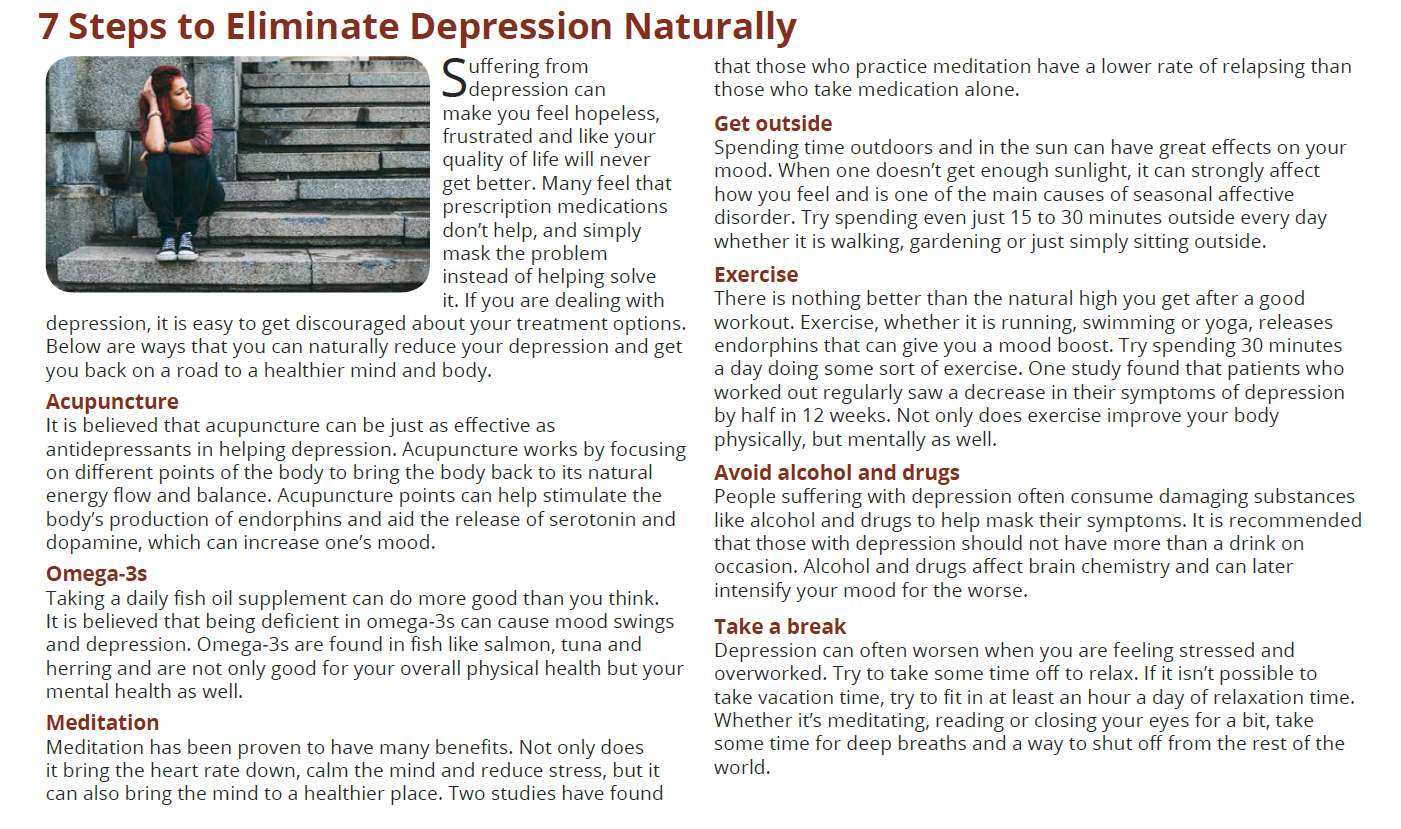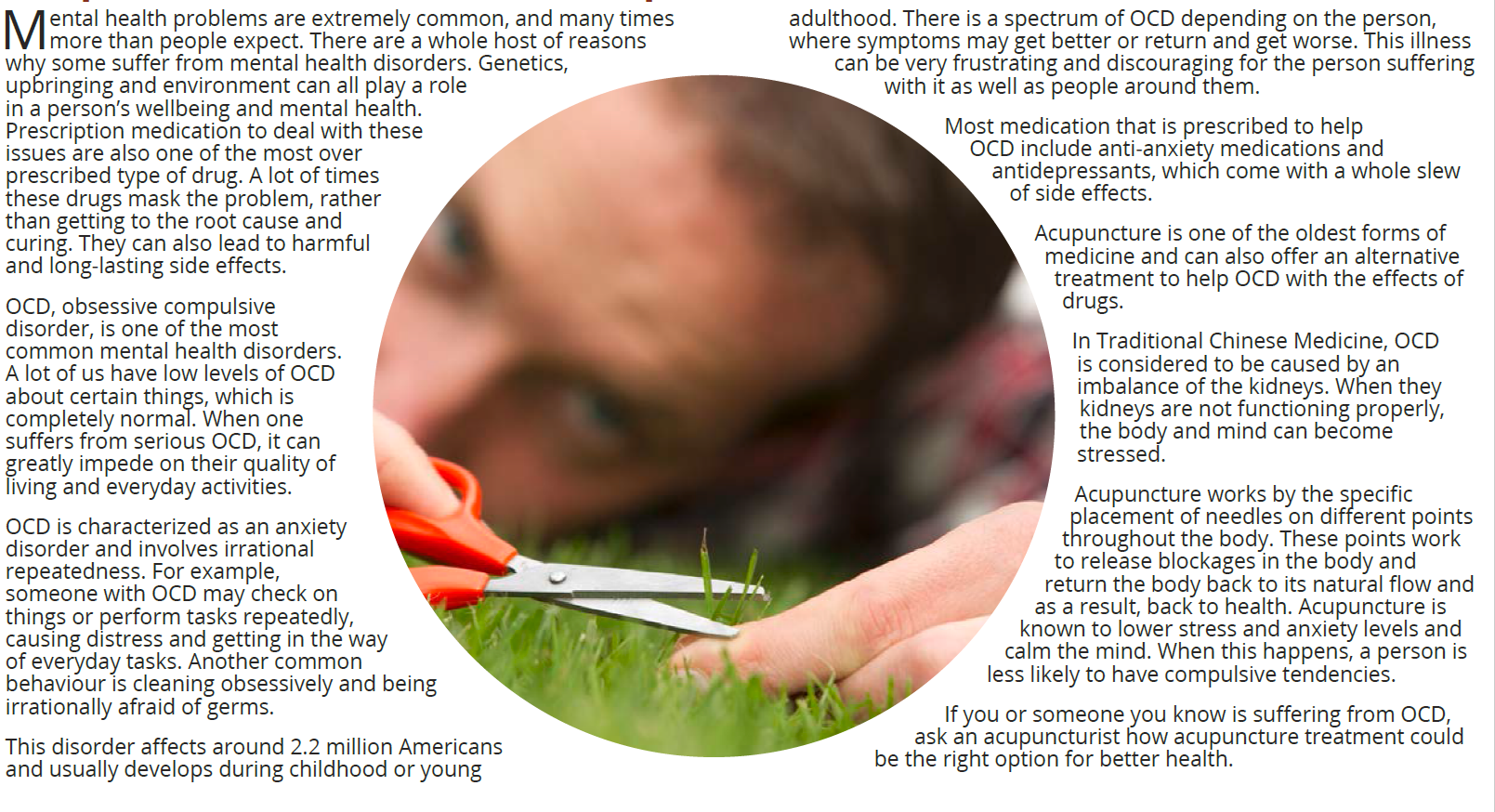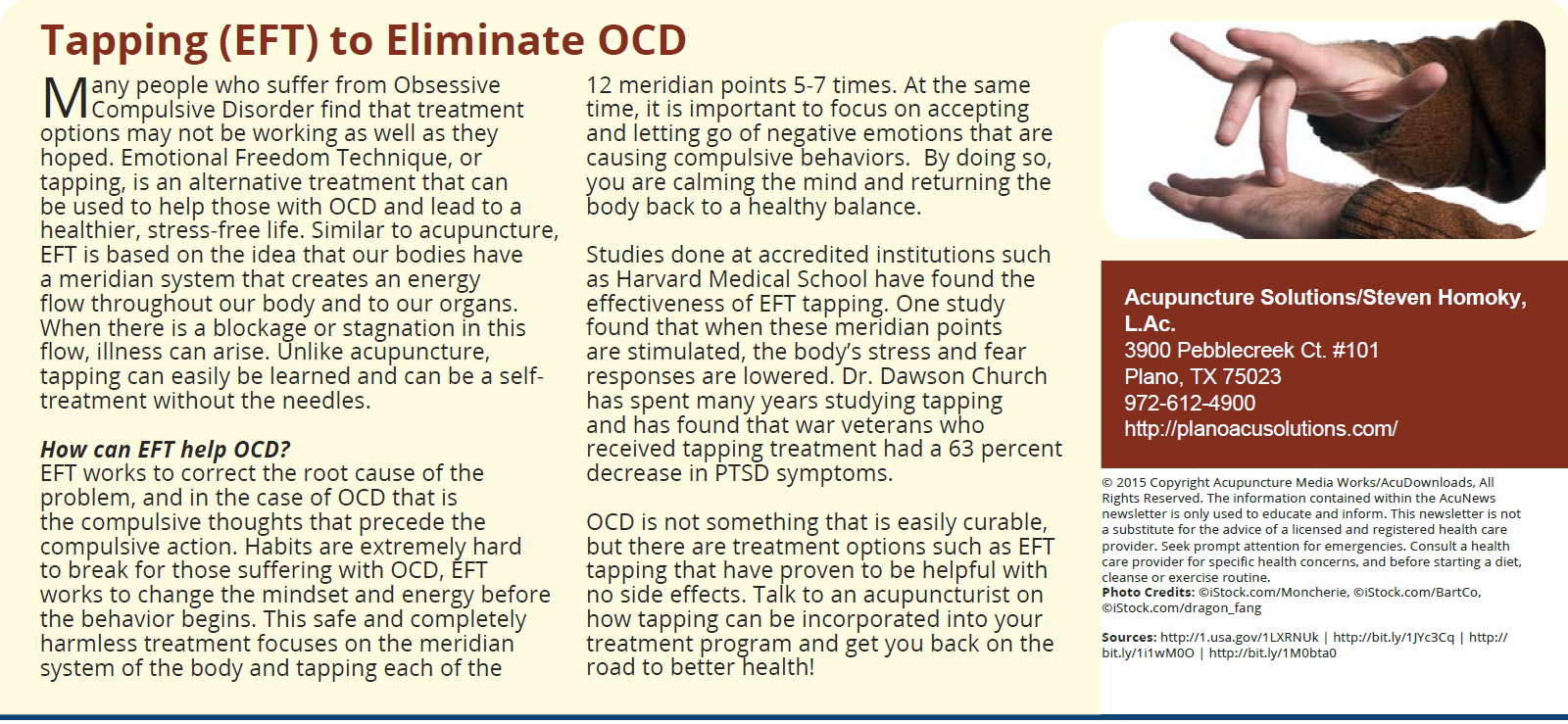-
Book Online Now - Acupuncture Solutions3900 Pebblecreek Ct #101
Plano, TX 75023972-612-4900 - 6501 Wesley St #A-1
Greenville, TX 75402903-213-3679 Learn more about…
#autumn #balance #behappy #fall #familytime #germs #healthlyliving #healthyskin #immunesystem #organs #psoriasis #seasons #sunscreen #thinkpositive acupressure acupuncture allergies anxiety coronavirus covid-19 depression diet digestion energy exercise headaches health heart herbs kidneys liver lungs meditation migraines nutrition pain pms qi sleep spring stress summer tcm Traditional Chinese Medicine winter
AcuDownloads
7 Tips to be Stress-Free During the Holidays
7 Tips to be Stress-Free During the Holidays
Keep a routine
It is especially easy to lose your normal routine during the holidays due to festivities and the special occasions that tend to happen this time of year. Don’t abandon your healthy habits, keep your usual routine of diet and exercise, which is especially important when holiday foods and drinks come around. Try keeping a calendar to keep better track of your schedule.
Prioritize
It is easy to take on too much during this time of year. On top of your normal schedule, there is the obligation to see family, attend gatherings and gift-giving. You can only do so much! Prioritize and don’t be afraid to say no if you simply don’t have enough time to commit to something. The holiday season is busy and overwhelming, but it doesn’t have to be.
Watch the wallet
There is nothing that will stress you out more in the long run than spending too much money during the holidays. Make a budget and stick with it. It is incredibly easy to overspend during this time. Budget and allow yourself to spend a certain amount for the entire season, you’ll thank yourself after the holidays are over.
Make time for yourself
Although it is the season for giving, make sure to make time for yourself too. It can be stressful and overwhelming when you try to constantly please others. It is okay to say no to events that you may feel obligated to go to. One of the most important ways to stay stress-free this season is to give yourself time to relax. Do yoga, read or any other activity you like to do to relax.
Try acupuncture
There is no better time than now to try acupuncture. If you are feeling under the weather, stressed and not at your best health, acupuncture can help. Acupuncture can help lower stress levels, boost your immune system and leave you feeling relaxed. Give it a shot!
Give Back
Volunteer at your local food back or donate to a clothing drive. Giving back to the community is always important, but especially during the holidays. Spending time helping out doesn’t just help others, but can benefit you as well.
Don’t sweat the small things
Holidays are meant for family, friends and for celebration. Don’t sweat the small stuff. This is a time to relax and be thankful for the people in your life. Material objects come and go, but relationships will be there and are the most important thing of all. Put your job and your stress on the back-burner for a bit and enjoy the people who mean the most around you.
5 Tips to Help Your Diabetes
 There are about 29 million people in the United States who suffer from type 2 diabetes, an illness that is becoming increasingly common and is also highly preventable. With lifestyle changes, diabetes can be managed and prevented.
There are about 29 million people in the United States who suffer from type 2 diabetes, an illness that is becoming increasingly common and is also highly preventable. With lifestyle changes, diabetes can be managed and prevented.
Aim for a healthy weight
When you have extra weight, this can cause an increase in blood sugar. Maintaining a healthy weight can keep your blood sugar at more normal levels and better overall health.
Exercise
Exercise is very important when it comes to managing or preventing type 2 diabetes. Regular exercise can help lower weight, lower stress levels, blood pressure, cholesterol and triglyceride. Even just by adding in walks into your day can make a difference. Aim for 30 minutes of aerobic exercise at least four times a week.
Diet
Having a healthy diet is a lifestyle change, and that can be hard for people.
Keep carbs in check, they tend to affect your blood sugar the most. Know how many carbohydrates are in the food you’re eating to keep them at the level you need to be for managing your blood sugar.
Avoid processed sugar. Sugar in the form of sucrose or high fructose corn syrup can spike blood sugar rapidly. For people with diabetes, it is especially dangerous.
Be on top of your schedule
Diabetes requires an everyday awareness as well as a schedule when it comes to medication and insulin. If you have trouble remembering to take your medication or test yourself regularly, try setting reminders on your phone or keep a calendar near by. Consistency can make all the difference.
Try acupuncture
Neuropathy is one result of diabetes, acupuncture can help reduce this nerve pain by boosting the release of endorphins, the body’s natural pain reliever. Acupuncture has almost no side effects and is a great complementary option to reducing chronic pain.
http://www.webmd.com/diabetes/guide/natural-remedies-type-2-diabetes
7 Acupuncture Tips for a Healthy Fall | AcuTake
 Fall is right around the corner.
Fall is right around the corner.
New seasons are an opportunity to assess our states of health and realign with our natural rhythms.
From an acupuncture perspective, fall is about refinement. It’s time to pare down, to let go of the excesses we allowed ourselves in summer and focus on what’s necessary for winter.
In acupuncture theory, humans are viewed as microcosms of the natural world that surrounds them. Weather and climate, particularly during the transition from one season to another, factor significantly into acupuncture diagnoses and treatment plans.
The transition into fall is especially noteworthy because it signifies moving from the more active seasons to the more passive. This directly impacts how we feel, and how we prevent and treat illness.
How to Stay Healthy This Fall
Each season is linked with a natural element, organ and emotion. The element, organ and emotion of fall are, respectively, Metal, Lung and grief. These three things usher us throughout the season, serving as barometers for where we’re at and offering insight on how to be better.
With Metal, Lung and grief as our guides, here are seven acupuncture tips for staying healthy this fall.
Make a list of your priorities
Fall is when we ought to embrace our Metal-esque qualities: strong, definitive, focused, discerning. It is time to get down to business, to gain clarity about what really matters to us.
As satisfying as this can be, it also can be overwhelming. If I hunker down at work, how will I make time for the kids? If I focus on cooking healthy meals and eating at home to save money, how will I socialize with friends?
Make a list of which priorities deserve your attention. Write them down and glance at the list periodically throughout the season.
Fall heightens our innate ability to get stuff done. Take advantage of it by reminding yourself where to focus.
Wear a scarf
Acupuncturists are always going on about wearing scarves. It’s for good reason.
Lung, the organ associated with fall, is considered the most exterior organ. It is the first line of defense against external pathogenic factors. As the weather turns cold and the wind picks up, the Lung organ is extra vulnerable.
Further, pathogenic factors such as cold and wind invade the body at the back of the neck, so keeping that area protected is very important in the fall. Even if it’s sunny, always bring a scarf when you head outside.
Do acupressure on Lung 7

One of the best points for strengthening the Lung organ is Lung 7. It helps promote the descending function of the Lungs, which makes it a great point for cough, shortness of breath and nasal congestion.
Lung 7 also is one of the most effective points for neck pain and stiffness. As mentioned above, wearing a scarf helps, but for protecting yourself against any residual wind and the resulting head and neck tension, Lung 7 will come in handy.
Lung 7 is easy to access yourself. Make a thumbs-up sign. When you do that, you’ll see a depression at the base of your thumb (referred to as the anatomical snuffbox). From that depression, Lung 7 is located approximately two finger widths up your arm.
Stay hydrated
Dryness of all kinds is common in fall. Since Lung is the most exterior organ, it is the organ that relates most closely to the skin. Dry skin and even rashes tend to show up in fall. Drink a lot of water and keep your skin hydrated with non-alcoholic (alcohol will dry you out more) moisturizer.
Another reason to stay hydrated is to regulate digestion. The Lung’s paired organ is Large Intestine, so sometimes digestive issues can flare up this time of year. Constipation, due to the dryness of the season, is most common, especially in people who struggle with the “letting go” aspect of transitioning into fall.
Use a neti pot
As fall encourages us to let go of the inessential priorities in our lives, many of us also find ourselves letting go from our nasal passages. Bring on the tissues! Fall is the most common time of year for the onset of nasal infections and post-nasal drip, both of which plague many people well into winter. Keep a neti pot in the shower and use it regularly throughout the season to help keep your nasal passages clear.
Reframe grief
The emotion associated with fall is grief. This is the time of year to pull inward, to grieve letting go and to reflect on any unresolved sadness. This can be an adjustment after the surge of energy and mood that many of us experience during summer, but it is normal to feel somewhat somber and pensive in the fall.
The inability to settle into this emotional shift, or transition out of it, may suggest an imbalance. However, before labeling yourself with seasonal affective disorder, or SAD—a common biomedical diagnosis for people who feel depressed in the colder, darker months—consider that you may be experiencing a natural heightened awareness of grief. If you sense it might be more than that, by all means, see your doctor.
Eat warm foods
Step away from the salad! The cool, raw, refreshing salads of summer will not do you any favors come fall. Just as we need to start keeping our bodies warmer on the outside, we need to stay warm on the inside as well.
In fall, eat warm, cooked food. Instead of cold cereal with milk, choose oatmeal. Trade the salads for oven-roasted veggies over brown rice. When cooking, throw in some onions, ginger, garlic or mustard—these pungent foods are known to benefit the Lung organ.
Veggie wise, root vegetables such as beets, turnips, carrots, parsnips, sweet potatoes, pumpkin and squash are ideal. If you go for out-of-season vegetables, make sure they are cooked. If you’re craving fruit, reach for something seasonal such as apples, pears, grapes, figs or persimmons.
Wishing you a happy and healthy fall.





